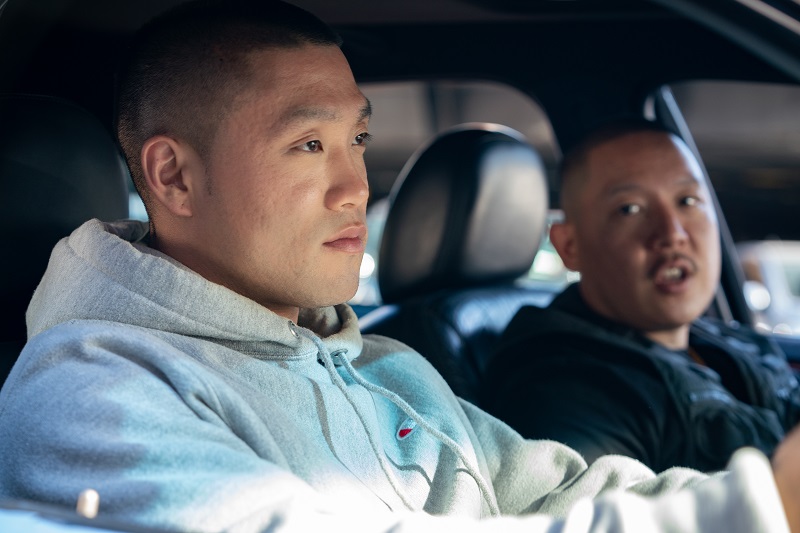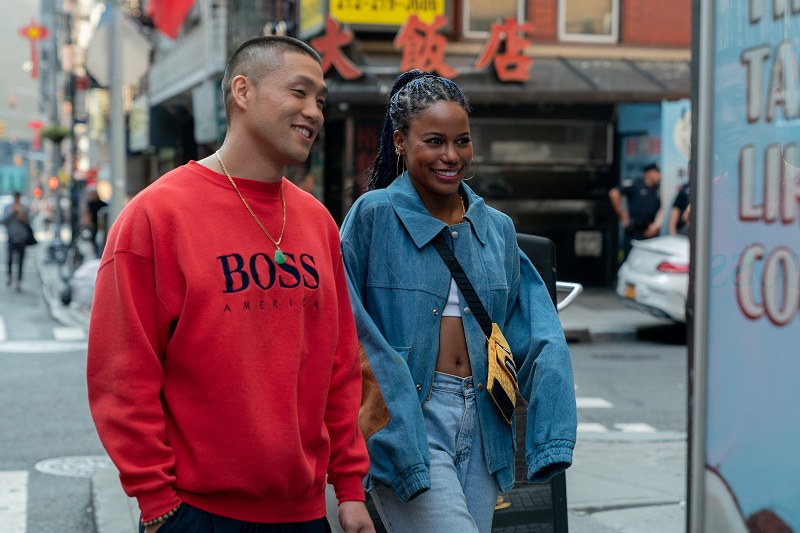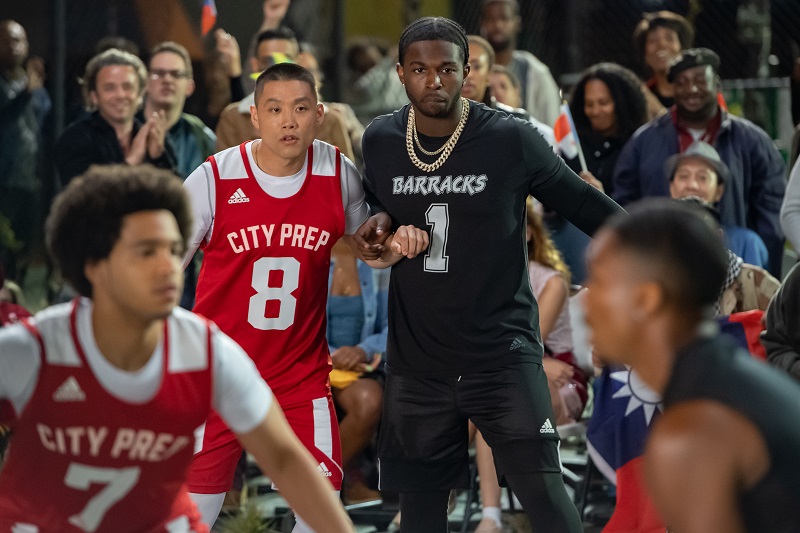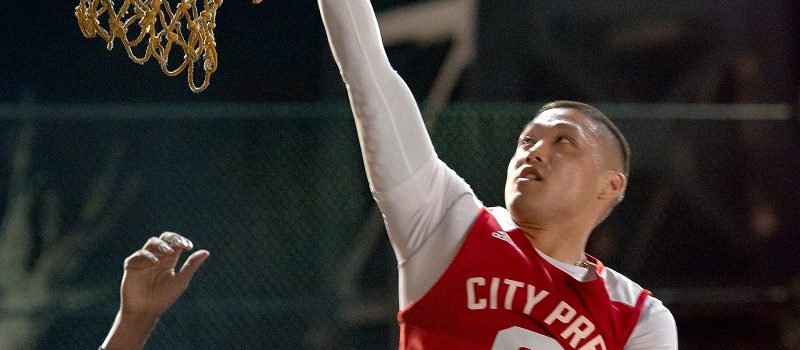The best sports movies are about so much more than final scores. With Boogie out now, where does the story of Alfred “Boogie” Chin, a basketball-phenom growing up in New York City, where does it land on the spectrum of inspiring buzzer-beaters, or is it a brick that simply clanks when it hits the rim?

Boogie is the son of Taiwanese immigrants and dreams of playing in the NBA one day. The question is how one gets there. The pressure is on, especially from his parents to secure a scholarship to a division one, preferably top 20, college. The problem is, as the season begins at his new school, there are no scholarships on the table. It’s a new school because of one reason, the fact that “Prep” has a late-season game that pits Boogie against what many consider to be the number one prospect (at least in the city), Pop Smoke’s Monk. Should he and his team defeat Monk and his school, Boogie’s stock would skyrocket.
As an Asian-American, it is made clear in Eddie Huang’s film that they are always the last chosen in pick-up games and the like and that sports stardom for someone with Boogie’s background is so rare, it would exponentially reverberate throughout the entire community and inspire countless folks. Our high school senior has a new girlfriend in Taylour Paige’s Eleanor (his first) and finds that as the season goes on and schools from St. Johns to Georgetown visit him and his parents, there are promises of walk-on roles for their teams, but no scholarships.
Huang wrote and directed the film and sadly, there’s something missing in Boogie. Whereas the movie should be a rousing triumph, it instead falls flat—both emotionally and inspirationally. Part of that problem is the casting. Taylor Takahashi is Boogie, and the young actor seems to have only one lane. He makes his big-screen debut in the film and there is so much potential there, it’s just that with so much thrown on this kid’s shoulders (including the future of his family), there would be some sort of emotive expression emanating from the title character. Perhaps I’m missing the boat completely, and that Takahashi decided to play the character as stoic.
But it is not simply the lead actor, the film itself—innate to its story design—had the highest of opportunities to make a myriad of statements about a variety of topics. Through that genre of the sports movie, so much can be said, and points made about any number of societal or familial issues. Yet, Boogie innately brings up a slew of topics that the viewer would naturally seek some sort of opinion achieved through characters or simply what happens to these characters. The entire thing simply feels rote.
There was a specific decision to point out that the family at the center of our story is from Taiwan. Many are saying, “Chinese,” but there is a huge difference and a history there that Boogie only loosely touches on—and we wanted more. Sure, there is a chat between Boogie and his uncle about the thing that separates them from other immigrants from China in America and that is “a war.” That was a huge opportunity to educate many Americans (and others) as to the unique situation that Taiwanese-Americans face in this country, but alas, the moment came… and went.

That’s just one example. The thing is, audiences, while engrossed in a sports film, can be enlightened while they’re entertained. That is what makes genre movies so special. Horror, sci-fi—they too have that gift. If almost any other player had the talent that Boogie exhibits on the floor, there would at least be scholarship offers from DII schools or a few DI schools that are nowhere near the top 50. It is alluded to that the reason for the lack of offers is due to his heritage. At one point, Boogie and his father are watching a tape of the Michael Chang 1989 French Open finals victory and just hanging out. I remember that day, and I’m not Asian. To those with even a dallop of blood from that region, that moment transcended sports. It was seismic. An Asian individual had won a major sports tournament—also, at the age of 17!
There is a reason that Mr. Chin (Perry Yung) makes his son repeatedly witness that great moment in sports and cultural history. That much, we glean. Sadly, the dots are never connected specifically to why this applies to Boogie. Because of how Huang plots out what happens to Boogie, it’s almost as if the Chang victory video and conversation scene are washed away by narrative decisions.
Yung and Pamelyn Chee (as Mrs. Chin) are the best parts of the film. Those two actors bring the heat and by how the film commences and then looking back at the entire experience as the credits rolled, their battle over Boogie is something that has been there since day one. Chee and Yung are fierce, commanding, and intense beyond anything else that is in Huang’s film. To say that they each have a differing view of the path that their son should take to get to the NBA is a gross understatement. As portrayed by the two thespians, they produce fireworks greater than any of the basketball game footage or backstory to those contests.

The game is inherently exciting. For goodness sake, each possession by a team even has a 35-second shot clock (in college… in high school, it varies by league)! Anytime you involve a clock in a situation—especially in the medium of film—the thrills can be palpable. Somehow, what Huang delivered in the many basketball game sequences in Boogie, was flat.
Sadly, like the movie itself.
Grade: C-

